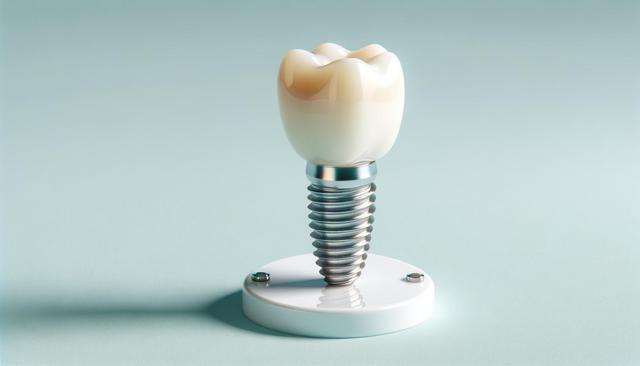Understanding Dental Implants: What They Are and How They Work
Dental implants are a modern treatment designed to replace missing teeth by mimicking both the function and appearance of natural teeth. They consist of a titanium post that is surgically placed into the jawbone, acting as a root for a crown that looks just like a real tooth. Over time, the implant fuses with the bone in a process called osseointegration, providing a stable and durable foundation for the dental prosthetic. This approach not only improves the aesthetics of a smile but also supports overall oral health by preventing bone loss and maintaining facial structure.
Unlike dentures or bridges, implants do not rely on neighboring teeth for support, which helps preserve the integrity of your remaining natural teeth. Their long-term success and effectiveness make them a popular choice for those seeking a permanent solution to tooth loss. With proper care, dental implants can last for decades, making them a practical option for many individuals.
Factors That Influence the Cost of Dental Implants
While dental implants are known for their durability and natural look, their cost can vary depending on several factors. Understanding what contributes to the price can help individuals make informed decisions about their treatment options. Some of the key elements that influence cost include:
- The number of implants needed
- The type and quality of implant materials used
- Whether bone grafting or sinus lifts are required
- The geographic location of the dental provider
- The expertise and experience of the dental professional
In addition to the implant procedure itself, patients should also consider the cost of consultations, diagnostic imaging, and follow-up appointments. These elements can add to the overall expense but are essential to ensuring successful outcomes. Fortunately, many providers now offer more accessible pricing models, and some even collaborate with financing companies to help patients manage costs over time.
Exploring Affordable Dental Implant Options
As the demand for dental implants continues to grow, so does the availability of more affordable options. Advances in dental technology and materials have made it possible to reduce costs without compromising quality. Many dental practices now offer tiered pricing based on the type of implant system used or the complexity of the procedure. This allows patients to choose a solution that aligns with their budget and needs.
Affordable dental implants may include:
- Mini dental implants, which are smaller and less invasive
- All-on-4 systems that support a full arch with fewer implants
- In-house dental plans that offer discounts on services
- Community dental clinics or dental schools providing lower-cost care
It’s important to consult with a qualified provider to determine if these options are suitable for your dental condition. While affordability is key, ensuring the treatment is safe, effective, and tailored to your needs should remain a priority.
How to Find Trusted Providers for Dental Implants
Choosing a reputable dental professional is crucial for a successful implant procedure. Start by researching local providers with experience in implant dentistry and check for credentials, patient reviews, and before-and-after photos. A trusted provider will be transparent about treatment options, associated costs, and realistic expectations for outcomes.
When evaluating potential providers, consider the following:
- Board certification and specialized training in implantology
- Use of advanced imaging technology for accurate placement
- Clear explanations of treatment plans and timelines
- Availability of follow-up care and maintenance services
Many clinics now offer free or low-cost consultations to help patients understand their options. Taking advantage of these opportunities can provide valuable insights into the provider’s approach and help you feel more confident in your decision.
Steps to Prepare for Your Dental Implant Journey
Once you’ve selected a provider and decided to move forward with treatment, preparation is the next step. A thorough evaluation, including X-rays or 3D imaging, will help assess bone density and overall oral health. Your provider may recommend pre-treatment procedures such as bone grafting if there is insufficient jawbone to support the implant.
To ensure a smooth implant process:
- Follow all pre-operative instructions, including dietary or medication guidelines
- Plan for recovery time and arrange for transportation if sedation is involved
- Maintain good oral hygiene before and after the procedure
- Attend all scheduled follow-up visits to monitor healing
Being proactive in your preparation and following your dentist’s guidance closely can significantly improve the success of your implant treatment. With the right support and care, dental implants can help restore both function and confidence to your smile.
Conclusion: Taking the First Step Toward a Healthier Smile
Restoring your smile with dental implants is a significant investment in your oral health and overall well-being. Thanks to more affordable treatment plans and a growing number of trusted providers, achieving a natural-looking, long-lasting solution for missing teeth is now within reach for many individuals. Whether you’re exploring your options for the first time or revisiting the idea with budget in mind, taking the time to research and prepare can make all the difference. Begin your journey today by consulting with a qualified professional and discover how dental implants can help you reclaim your smile with confidence.







